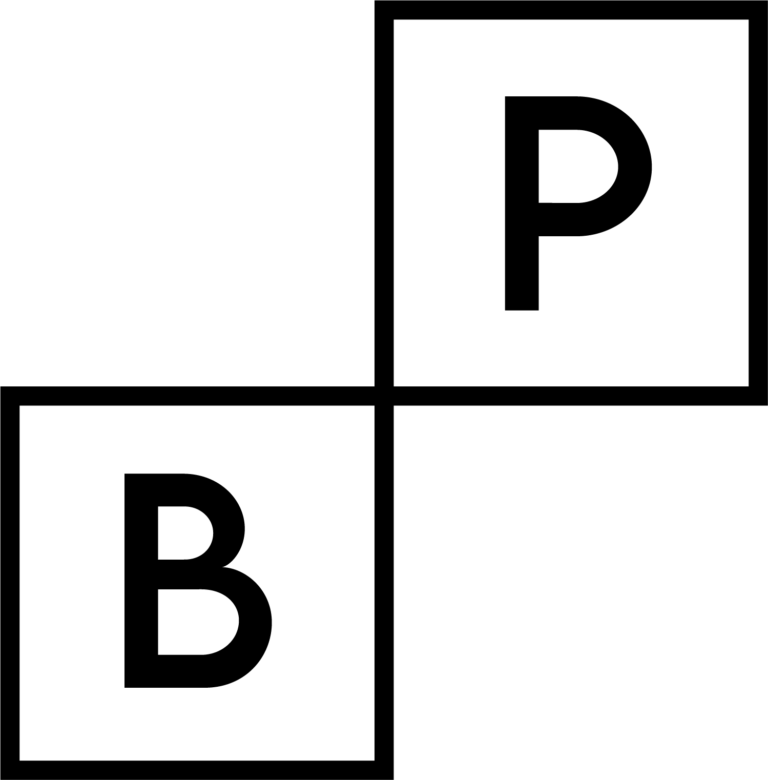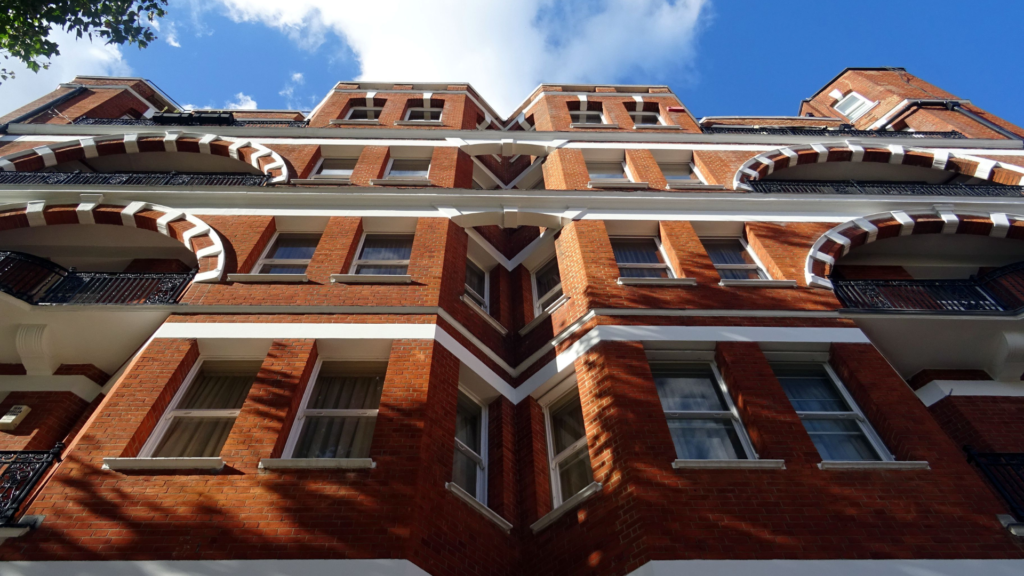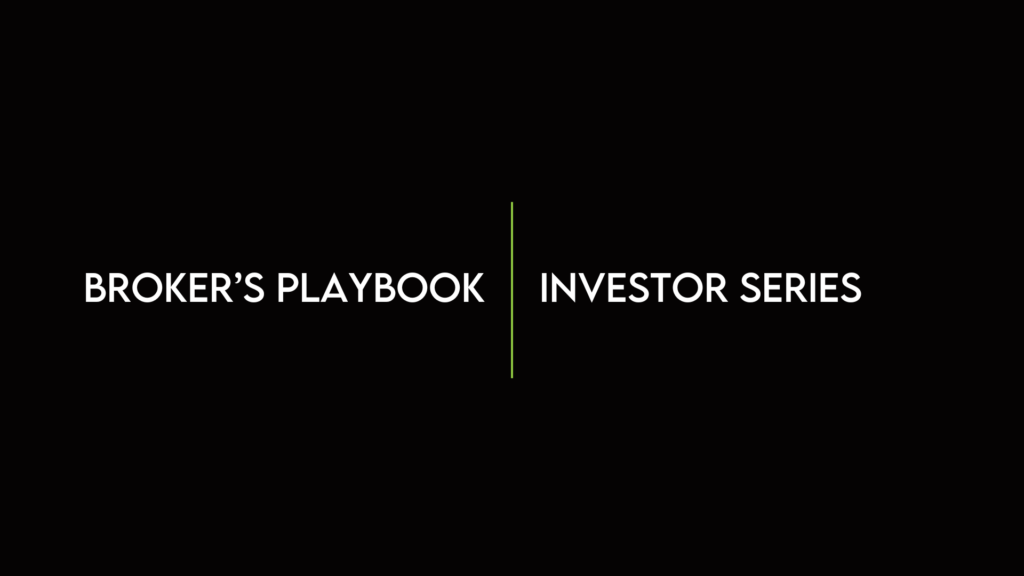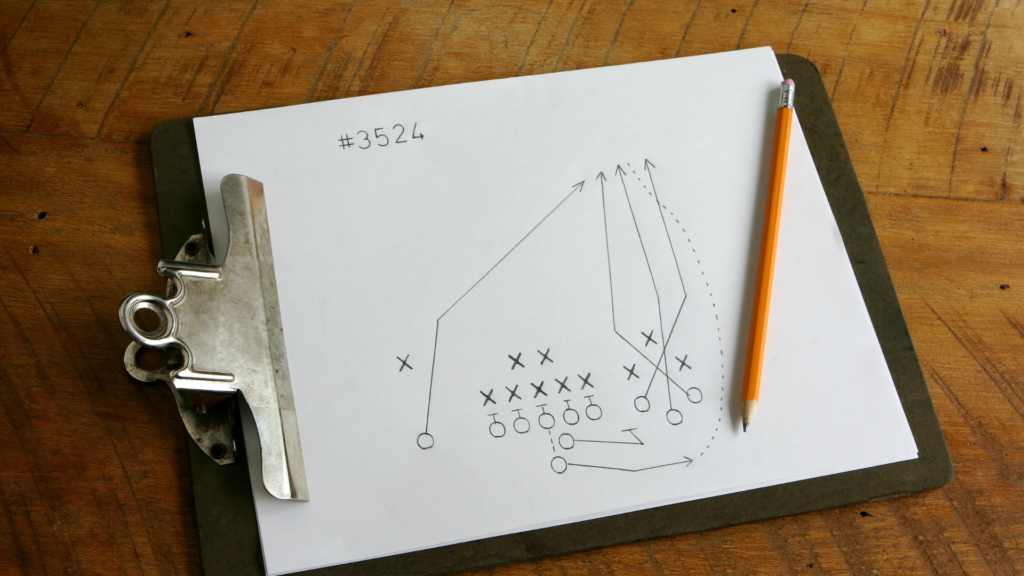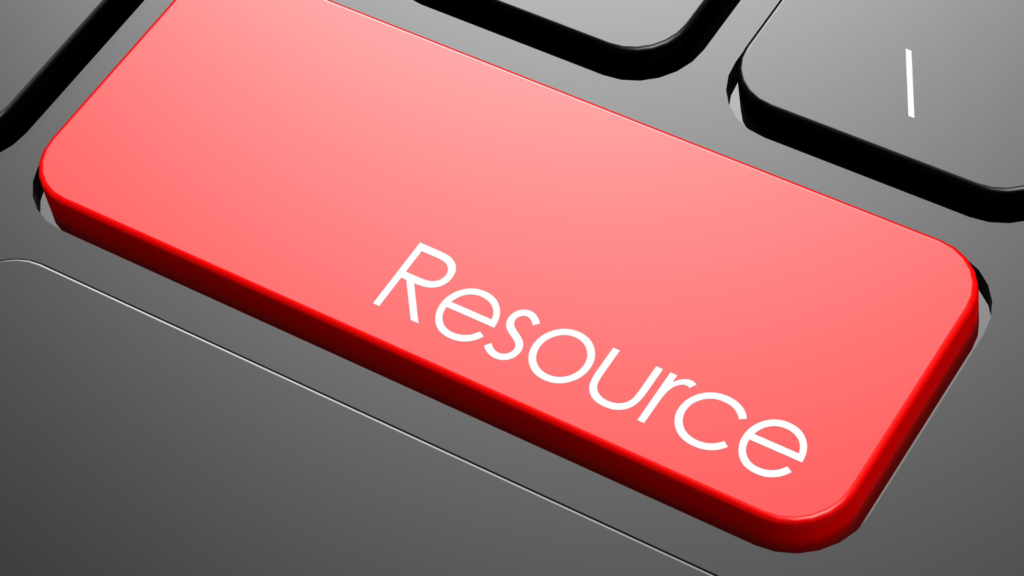Join us as we talk with Raymond Hau, team leader of 16 inspiring individuals in real estate. Learn how he made his brand successful and how his teams are making a positive impact on the world. Get valuable tips and insights into leading effective teams in the real estate industry that will help you reach your goals.
Ep 66 – Building a Winning Team w/ Raymond Hau | Broker’s Playbook
Simeon Papailias: What’s up? Brokers Playbook Nation. This is Simeon Papailias, and this is a quick synopsis of what to expect from Mr. Raymond Hau of the Haus team just operating out of North Toronto. I had him on the show and he shared his entire story and he’s been in business for exactly as long as I have going on 17 years. This guy is a true gem. He’s a hard worker and he shares all the insight of what it takes to build a team, when to expand into a team, and of course, what to do when you get there. See you all on the show. All right, Broker’s Playbook Nation. I am here with Mr. Raymond Hau this incredible spring morning. We are sitting at the Mississauga studio here in Ontario, Canada. And once again, we have a beautiful story to tell and share. We’ve lined up and had a discussion prior to this day to kind of line up those nuggets that made Raymond Hau the brand that he is today. And he is a team leader of 16 hardworking people that they believe make a difference in the world. And I believe he are making a difference in the world. Welcome to Broker’s Playbook, my man.
Raymond Hau: Thanks, man. Thanks for having me.
Simeon Papailias: It’s my pleasure. And I want to get right to it because I do believe in the next 30 to 45 minutes, we have a lot of ground to cover. We’re going to be talking teams. And this is a big, big topic and it’s a big part of both my journey and yours. Um, we kind of started at that same time around the, the financial collapse in the 2000. So 2007, 2008. I started in zero seven. You started in zero eight. Fun times. And it was a different world back then. Oh, yeah. A very, very different world. Tell me a little bit about your journey, how you started and what made you get to the point that you are today.
Raymond Hau: Yeah, no, I always had an entrepreneurial mindset and as well, I came from an entrepreneurial family. Everyone’s a business owner. My parents, my I have five siblings. What is your background, by the way? Chinese. I was born in Canada. Got it. So hardworking. Immigrants. Parents.
Simeon Papailias: Your parents are first generation, First generation immigrant.
Raymond Hau: Correct. Correct. So he they had a Chinese restaurant. My dad had a Chinese restaurant. So he worked in 24 over seven. No holidays. Actually, holidays was the busiest time for us.
Simeon Papailias: What kind of restaurant do you think my father had?
Raymond Hau: A Greek one, possibly. Probably. Probably. Family-run business. So all of the sisters and my brother and me have to work there washing dishes, everything. So I kind of learned my grit and hard work from there. Nothing was handed to me. And unfortunately, my dad passed away. And that’s when I, you know, I had to go and make money somehow. And I go had to pay for my own tuition. So I got my license when I was in university. And I didn’t look back the first few years. What did you study? I studied economics and marketing. Good for you. Yeah. So it was tough, right? You know, young, young kid as a real estate agent. And I. You know. Join our big house real estate company. Thinking that a big company will help me. Get me kickstarted and become a producer. A top producer. That’s what I want to be. So I joined and I realized right away that there was no support, no real proper training. And you’re just like another newbie agent. It was a big, big real estate office, more than thousands of agents. And they really only focused more top producers. And overall, the environment wasn’t that great either. Very like doggy dog kind of competition, which is toxic. Toxic, Yeah.
Simeon Papailias: And that is. Back in oh seven, I would say up to even 2012. That was the prevalent culture. It was everybody keeps their secrets close to their chest and the trust. And maybe it was our age, maybe because we were new, maybe it was better to others. But because we kind of started at the same time, I felt that, too. Okay. And it was. Gross Yeah. So my life’s mission has been to make the new agent. Yeah. Like I’m looking to change the industry in every conversation that I have by collaboration. I love it working together. And back then it felt like the polar opposite. Yeah. What did you do when you realized that’s what the that’s what the brokerage was like?
Raymond Hau: Well, I had to make money first, right? So I had to learn a lot of things myself and, you know, made a lot of mistakes, ate a lot of shit. Right. Because that’s the way the world is. It’s just like there’s a lot of, you know, a lot of my journey, a lot of roads that I made a lot of mistakes on, and I had to figure out stuff myself. So after 3 or 4 years, finally I joined another brokerage and it was a better environment, but still the training and there was no collaboration, no such thing as teams back then and luckily, you know, made more money and did more deals. And then eventually I actually joined the team and I joined the team. And what’s great about just.
Simeon Papailias: Just before you go join the team, how did you get the business? How did you earn the business that you were doing? So you did some deals, you made some money. Where did those deals come from? How did you market yourself? Yes.
Raymond Hau: So even then I didn’t really know how to market myself yet. It was just hustle mindset every day, just outworking everybody. Right. Being at that office before anybody and leaving the office the latest and also door knocking really, really putting the word out that I’m a real estate agent. Right? Like, you know, I treat sales as a numbers game. Right. If you don’t have if you only doing like ten calls and you don’t get one appointment, then the next day you do 20 calls. Right? Eventually, you know, you do 100 calls per day. You got to realize what’s the ratio right? What’s a conversion rate? Every 100 calls, you know that you’re going to get 2 or 3 appointments. 2 or 3 appointments. Got to convert to one client, you know? Right. So that’s what it is. For those months that I don’t have enough, I’m not meeting my quota like my personal goals, then I just got to work harder. Right at that time there was no such thing as like social media didn’t blow up yet. And it’s the traditional marketing, right? Yeah. Flyers.
Simeon Papailias: Facebook had just come out. There was. There was nothing. Yeah, yeah, yeah. It was still all phone calls. And in actual belly-to-belly you have to get out there doggy dog.
Raymond Hau: Really?
Simeon Papailias: Yes. Okay. Take me. You join a team.
Raymond Hau: Join a team. And what’s great about the team was you learn a lot. So that’s why any new agent out there. I really recommend joining a team. Right? Because all the mistakes that I did the first few years, I then having to support team a partnership. So I had to figure out stuff myself. So at the fifth year when I joined the team, I learned a lot from the team leader, like he was very good in sales, very good at doing deals. But what’s more important was I learned a lot that he didn’t do well, right? And it wasn’t a really good environment still. Right? The culture. There was no culture, Right. It was more just about sales, Wolf, of Wall Street style. Right.
Simeon Papailias: So get on the phone dial for dollars, correct?
Raymond Hau: Correct. So that’s when I learned a lot that when I know that when I started my team, that I pretty much culture was my number one focus. Yeah.
Simeon Papailias: Culture is another word that I find has been abused, used and abused in this business that everybody feels they have a culture. Yeah. What do you think or what do you value in culture? So when you say you like you have a team, you have a very successful team. Raymond and you have 11 agents for full time staff. How do they interact? What is the culture that you currently enjoy?
Raymond Hau: First. I think when you have a new team member that wants to join, I think that process has to be, you know, I can’t just recruit anybody. You got to make sure that that person that wants to join has the same mindset. And we’re very and we’re on the same similar goals and similar path. Right. That’s one like recruiting and also having I don’t call it recruit. It’s more like attracting, right? So that’s one. And then when they’re in, in, in our systems, in our agency second. Like putting people first. That’s one of our number one core value is to be absolutely humble. And humility is very important because at the end of the day, you know, this business is a lot of ego and a lot of ego. And I find that as a team leader, you know, you serve your team members, you serve your clients. It’s not the other way around. So that’s the culture that I want to and we’re creating at House is that everyone is uplifting each other, everyone’s high fiving and supporting each other, but more importantly, sharing our challenges and trying to help each other out, right? So we in our meetings, we share wins and challenges, and that’s the environment that we want to create. Like our community is very strong in that sense, is that everyone is putting, you know, everyone’s very humble, right? So that’s one thing. One of our motto in our team is Hustle hard and stay humble.
Simeon Papailias: That’s incredible. What markets do you serve right now?
Raymond Hau: York Region 905 I’d say mostly of our transactions in Markham, Richmond Hill. Vaughan So the majority is 905. And as well, we do a lot of pre-construction with developers all around GTA.
Simeon Papailias: Amazing. Yeah. In the culture that you’ve built, one of collaboration and obviously humanity, I think I think that’s the biggest word is to respect that other people may have goals just like you do. And the more we respect each other and if you do practice servant leadership, which sounds like you do, if you if you truly understand what servant leadership is, yeah, it’s it creates exactly the culture that you describe. And it’s not it’s not necessarily the only recipe to success. There is many different styles of leadership. You don’t have to be a servant leader, correct? You you can take any approach you want out there. What I want people to take away from this is that, number one, if you’re not prepared to eat shit sandwiches, that’s it. Because you talked about this earlier that you ate a lot and you talked to like 3 or 4 years, like it’s a day looking back on a 15 or 17 year career, 3 or 4 years does seem like you batted your eyes. Yeah, but when I see new agents come into the business now and they expect to be a quarter million dollar producer overnight, I mean, surprise, you’re wrong. Yeah. It’s not how it works. What I want to get at is this because you’ve said a couple of things that need to be unpacked. This business is a numbers game, but this business on the exact same flip side is a relationship game. Absolutely. It is a numbers game and a transactional business. If you choose to keep it that way.
Simeon Papailias: People like you. I know as a fact people like me will run the numbers game to attract and put the clients in the database. But the minute they’re in that database, it’s no longer a numbers game. Absolutely. Now it’s a relationship game. So for anybody who because I’ve been told this many times, oh, it’s easy for you to say you have a database. Don’t tell me what’s easy for me. I know what it cost me. I know the times. I know when I was home and I know when I was not home. My wife also knows when I was home and when I was not home and I was not home a lot while building that database. And I can speak to my business partner who still to this day slays 12, 14 and 16 hour days every day. Yeah. So the the cost of building a meaningful business, the reason we started teams is because of work ethic and doing what other people are not willing to do. And I think that cannot be overstated. I can I don’t think we say it enough. And I want new people in this business to have that key takeaway that no matter what, it takes time to build something meaningful. Going from culture to results. If a team member. Is not performing. Or they’re having a hard time adopting. What is your approach to improving their performance and or motivating somebody who is not doing what you would expect them to be or do?
Raymond Hau: Yeah, it goes back to training and it goes back to accountability, right? That’s why I said that we have a pretty rigorous process on interviewing team members that wants to join. And again, I don’t want to use the interview as more of a discovery meeting, but it’s not just like you want to join it right away, you join house. So we want to make sure we’re aligned. And then the moment you join house, we discuss what’s your goals? I don’t have like a cookie cutter template of the whole, you know, uploading process of the team member to, to our to our team. Everyone has different goals and different business ambitions. So I always ask, what’s the goals? What do you see yourself in? One year is three years and how many deals you want to do this year, right? And what kind of brand you want to build. So based on what they say. I will reverse engineer and help them create a curated plan from monthly to weekly to daily. So we do have an accountability meeting with my team members every single month. Sometimes team members request a weekly or bi weekly. I’m totally fine, which that’s what I think a team leader or.
Simeon Papailias: Coach as far as accountability. Are you what KPI’s are you tracking? Number of calls made, number of deals done. A little bit about your process.
Raymond Hau: Exactly. Number of calls, a number of deals. How many appointments that you made. And we will look at the CRMs and how many we track everything. Right? And you know, if you’re not doing enough calls, that kind of explains why you’re not doing as much deals that you want to be. Right. And maybe if maybe you are doing enough calls, maybe it just comes down to your sales skills sharpening up your sword. So that’s why we go back to training and go back to role playing.
Simeon Papailias: What kind of training is it your own proprietary training where you spend time with them? Are you using a trainer or are you doing. We do.
Raymond Hau: Both. We do both. We we have a system coach that will train us and update us on, you know, the market knowledge and all that. And as well, we have our own personal training, so we do both.
Simeon Papailias: And what CRM is your team? Chime. Chime. And are you happy with it? I’m happy.
Raymond Hau: With it. It’s very user friendly, very basic because we’ve done the Salesforce and all that already and I find it that at the end of day, agents just cares about what new leads are in note taking and contacts. If you put too much in front of them, they got to get too confused and they’re not going to even bother using it. That’s what I.
Simeon Papailias: Found. I do agree. We do. We have a highly complex CRM, fairly easy to use for for the regular features, but it does have a lot of depth to it. But I will say and agree with you that the majority of agents under use it by 80% using its actual basic functions of contact, calling and note taking. That’s it. The ones that do choose to explore the rest are for sure higher producing. Yeah, because they are better with technology and and do more. And I do encourage teams to to invest more in technology and streamlining our team at this point being 61 agents is is very large and it wouldn’t be actually possible to manage that many people without a proper streamlined CRM hundred percent. So that’s hugely important. Tell me a little bit about your take on marketing in spring of 2023? We’ve come off obviously a global record for banking, interest rates, inflation. I’m talking globally. I’m not talking just North America or Canada. The whole world is feeling the the results of the pandemic, it seems. In February, we saw the last interest rate hike. We’ve gone through two reporting periods with no change. And now in a week’s time or two weeks time, actually we’re expecting a decision in more than likely, there is going to be an increase based on kind of the numbers and where things are heading. How are you preparing both your client audience? How are you preparing your agents with with marketing techniques and conversation?
Raymond Hau: Okay, so marketing, that’s why brand building is so important. So with our team and our agency, what we believe in is house is there for you to leverage. It’s not the end all, be all. It’s not like you work under house. We want your brand to leverage our brand and that collaboration, we find it that it will, you know, provide more value to your clients.
Simeon Papailias: So and of course, to them, they don’t feel like in the shadow of anyone.
Raymond Hau: Exactly. Because it’s not called the Raymond House team. Right. We don’t want I don’t want that. Right. I learn a lot from my mistakes from the first five years and what I saw from other teams. So for us, House is for you to leverage. So all of my team members, I definitely encourage for them to build their own brand and leverage house. So that’s why we do have a lot of marketing training and brand building that they can leverage. And really key thing is building yourself a premium brand, leveraging social media, YouTube, because that’s the way are they creating content? They’re creating content. You have to be in this day and age, you’re not, you’re not. It’s not like you have to do video content and YouTube. If you’re not doing it, you’re actually behind. That’s why I find it. Technology is moving so fast. You probably hear about it ChatGPT, AI, all that stuff. So you better I don’t care how old or how long you’ve been in the business, you better be doing content, which is what we’re doing in podcasting, right? That’s right. Yeah. So leverage that because at the end of the day, you don’t want to be like any other agent, right? There’s 80,000 agents. So how do you set yourself apart from other agents? It’s just being you and there’s no better platform for you to leverage a social media. It’s free, for God’s sakes. Right. So you have no excuses. Back then when I started, it’s just you have to do the postcards, you have to pay money and then postcards. Flyers. It’s just like it’s like throwing a dart in a in a in a in a whatever it’s called. So that’s why social media, there’s no excuses. There’s that kind of exposure for you to really talk about your brand, talk about yourself and the value that you provide to your clients. Just be yourself. Right? Because I get it. Like my first ten videos was very cringey, right? But I found that that by being yourself, they actually attract the high quality clients.
Simeon Papailias: You attract the right clients, Correct. So. So bingo. If somebody sees who you are and they like who you are, there’s a reason for it.
Raymond Hau: Yes.
Simeon Papailias: So more than likely, if somebody likes you, more than likely you’re going to like them. Yes. So content has really changed the game in client attraction and client distraction, because the last thing you want to do is work with somebody you can’t stand the or fathom working with because of the way they think or act, for that matter. So so I do feel that’s a game changer. Taking the conversation back to today’s difficult topic of interest rate, is this the right time to buy? Is this the right time to sell? What are your agents doing right now with with their clients? What are you what is your advice? What is your advice to a client right now? How do you feel about this market right now?
Raymond Hau: So where we do most of our business right now and Markham, Richmond Hill, we have a low supply market like we recently just sold a listing yesterday like we on average since January, been selling about three listings per week because of the low supply in our markets. So actually our agents have been very busy, right? Yeah, because just from my open houses, from my listings, because I get I give the open house to my team members, they are chatting a lot of leads, they’re chatting a lot of buyers, potential other sellers. We get on average 100 registrants per weekend per listing. So it’s incredible. Yeah. So this is the time to really maximize the opportunity? Yes, a lot of things can happen. New regulations, interest rate change, the macro economics. Yes. But right now we’re very, very busy. So. Maximize the opportunity now because we all know in real estate, we’ve been in this for 15 years. It can change just like that.
Simeon Papailias: So you believe in that ten X mindset maximizing? Tell me about that philosophy and how that translates into results.
Raymond Hau: Yeah, one of our core values on our team is maximum exposure because marketing is so important and brand building is so important. So whenever you have a listing, okay, you should go all out. That’s the name of the game. Like go all out if you got a listing. We all know that it attracts more business, so why would you not be promoting that on YouTube, Instagram, Facebook, flyers, door knocking invites to your open house, meeting people face to face to attract more clients, Right. So by doing that and doing maximum exposure, every time you get a listing, you’re going to get your your business is going to build your business. Got a ten x each time because your database is going to be increasing more and more So by by the maximum exposure and mindset, not just for your listing, but for your own brand and your own business like really go all out. So like for us in Markham and Richmond Hill, you’ll see my signs, our faces everywhere, right? Whenever we get one listing, we put a lot of signs out, right? Not to the point that, you know, it’s like the city is getting pissed off, but, you know, we’re almost. Almost, yeah, yeah. So that and combination of digital marketing, that’s where, you know, like in marketing. I don’t know if you heard this. I mean, like there’s something called the 27 touches. It takes someone 27 touches. Doesn’t matter if it’s from being passed by your for sale sign, seeing you on social media, YouTube and your flyer. 27 touches until they, you know, register registers in their mind to call you to do something about it. So you really gotta go all out. And you’re in an industry where there’s 80,000 agents, so do not be like them. Have your own brand and model.
Simeon Papailias: Well, just do that only because I saw a stat last year and I’ve talked about this, I talk about it almost every single day because it’s so shocking to me. 80,000 agent. Count and over 50,000 didn’t do a single single deal. Deal? Yeah. Not one. Sew, sew, sew. For me, that speaks volume of how many people understand that you need to get to 27 touches before you can expect someone to do a deal with you. So if half the industry. So this is good news, by the way. Yeah, it is. The good news is that 50% of registrants are grossly incompetent at their job. It’s terrible for the consumer because that means that they have a 1 in 2 chance of running into a dud. It’s bad for our industry, but it’s good for the competent. It’s good for the the professional who cares? Because if you know human behavior like they need 27 touches or you’re in order for you to actually make a difference in someone’s life, you need to speak to them at least four times. You can’t expect to do. Like if you do a deal on the first call, it’s a freak accident or they just needed you and they were ready and maybe they saw you a hundred times on socials and they trusted you. But to expect to do a deal on the first or second call is grossly entitled and spoiled.
Raymond Hau: But that’s what they mean by maximum exposure, because you never know where the next buyer is going to be. You never know where the next deal is going to be. I think there’s a saying, I don’t know where I heard it from, but you can do a lot of work in real estate and make no money, or you can do very little work and make lots of money in real estate. You never know.
Simeon Papailias: No, you don’t. You don’t know. Every deal is different. Every deal is different. But this is why that going back to brand, if you have a brand and you consistently create content that is all working for you 24 over seven, correct? 24 over seven. When somebody is up at two in the morning, you might be in your sleep. But if they’re browsing the Internet and they run into your video and your message just made sense to them, they heard the right message at the right time. You’re waking up to a DM, that’s it. And I have woken up to hundreds of DMS over time and it is because of consistency and content creating and brand building that I reap those rewards. Agent knocks on your door tomorrow. They fit the bill. Everything is good. What is the first thing or what is the first 30 days on the House team look like from an onboarding and an expectation? What kind of team leadership do you provide?
Raymond Hau: Well, most importantly is leveraging our brand. And again, really and that’s.
Simeon Papailias: Assets, that’s actual systems, resources.
Raymond Hau: Systems that we have that we built. I’m a big systems guy. I think that’s a lot of times why a team member wants to join is that they don’t have a system and they want to leverage our system right and leveraging our marketing. And because we do, I find that we have pretty powerful, unique marketing because I have something called a signature house tour in our YouTube. Thousands of followers, we get about on average 15 to 20,000 views per video. So every listing we do, we do a extremely strong.
Simeon Papailias: That’s amazing.
Raymond Hau: Thank you. Yeah. So we do a signature house tour and the vision of the signature house tour was it feels like in the video when I presenting, it feels like you’re actually going through a buyer showing. So if you’re my buyer, you know, when I bring you to open that door to the potential new home that you might buy, you know, I don’t just talk about the house. You talk about the location, the school zone, the shops and amenities, how far it’s away from the highway and the subway. So those are things that every buyer wants to know. So we leverage motion graphics with that. And that’s why we have our own in-house media team, full time salary paid. It’s a lot of money, a lot of effort, but we find it’s worth it because a lot of buyers who watch the video, they know every single thing about that property. Right? Even agents that I grew up with, they say that your video is amazing and they even help them close the deal for their buyer, for sure. And that’s the whole point. That’s the whole point of co-op, right? Sometimes the co-op agent do not know how to sell that house. Well, watch my video, right? Yeah. So that’s one thing that we encourage our team members to do is to do more house tours and do more content creation, because at the day it’s your own brand and it’s your own business. So I don’t want your brand and business to look like house brand because it’s your brand, whatever that is like. Just recently, one of my team members.
Simeon Papailias: Take advantage of what you’ve built.
Raymond Hau: Leverage that, leverage that. Like one of my team members loved to do golf, so I’m just like, go do golf content. Why not, you know, in the driving range? And then after you hit a few shots, you start talking about real estate, right? Be relatable. You got to attract golf buyers, right? Correct. Buyers who like golf. And wouldn’t that be fun when you do showings?
Simeon Papailias: Yeah, because you’re hanging out with people who have the same hobbies and the same passions as you do.
Raymond Hau: Exactly. And so that’s what I preach to my team. And at other day, like House, we have a saying called This is Your House because I don’t want it to be that you’re working under my team. I want you to leverage house to make your brand and business stronger. Right? That’s why my goal and vision is to build a community where we all really actually collaborate. And we’re a house of collaborators, a house of creators and a house of professionals.
Simeon Papailias: Raymond, I’m going to take you I’m going to try to bring some value to the senior agent thinking of creating a team. Okay. When did you realize and how did you realize that you wanted to start a team and what was the the major driving force behind it? Like, why did you want to do this? Why did you do this?
Raymond Hau: I saw the industry was broken the first five years very like I think we were very similar path. Simeon is like in the beginning I saw that toxic environment between agents that even though we call each other cooperating agents. But yeah, we cooperate in the deal, but in the outside of things, we do not collaborate and cooperate when it comes to marketing and really helping each other when we need help, how to, you know, put an offer in or anything like that. So I found that the industry needs to be improved in that sense. And as well, when it comes to the face value of what the public sees, what agents are and, you know, typical agents, the way they market themselves is they drive a nice car. You look at YouTube videos, how they market their listings. They come out of a car, a BMW with the Gucci belt with a sunglasses on and started talking and start flashing the gold Rolexes and started talking about look at my newest listing, blah, blah, blah. First few minutes they talk.
Simeon Papailias: About and cringe. Yes, cringe, cringe, cringe. So don’t flash your Benz or your Rolex. Yeah. On your clients listings driveway. Don’t do it. It’s a bad look.
Raymond Hau: Go on. Like how does how does like, how does that provide value to your listing and to your clients?
Simeon Papailias: It does the.
Raymond Hau: Opposite. It does the opposite. It’s cringey. And you can’t blame the public to think that we are snake oil salesman. We make we make way too much money. We have no like proper education to get license. But it’s not. I really do feel that our profession is very noble because we. We making with helping our clients making the biggest decision of their lives.
Simeon Papailias: Some of us, some.
Raymond Hau: Of us see.
Simeon Papailias: The business as as what it is, and that’s servant leadership that is understanding humility in what the job is. The job is not for you to look a certain way. It’s rather to sell your clients home for the most amount of money, correct or represent your buyer’s best interests. And again, saving the most money. Yes, this is negotiation at its highest level. Yeah. And there is no room for insecure nonsense.
Raymond Hau: There you go. I mean, so that’s why I wake up every morning. Really? Really just how can I improve this industry? That’s my passion, right? I’m very passionate about this industry and I find that, yes, there’s a lot of bad players, but the ones that we have very similar vision and mindset as us, I want to help them. At the same time we help each other.
Simeon Papailias: Number one piece of advice to the person thinking of starting a team, where do they start?
Raymond Hau: Where did it start is I think number one is your mindset first. Okay. I think mindset is so important. I think number one is definitely drop your ego. Drop your ego first. Because at the day I feel like if you want to start a team, listen, there are team members is not serving you and not helping you, okay? They’re there because they’re leveraging off your systems. They want to learn from you and they want to follow your path and they want to leverage your marketing. So day to day, you really got to be like that, you know, CEO or startup founder that how can I improve my team members and my clients business? So that’s why drop your ego. And really there’s no like it’s an even playing field like in our team there’s no like everyone’s even. And every day we celebrate each other’s wins and we collaborate and we always try to find different ideas on improve each other’s business. And I think that’s very powerful. At the end of the day, if we do that, everyone wins.
Simeon Papailias: I think you are a noble man and I think you’re doing the business for the right reasons and I love that. What is next for Raymond Howe?
Raymond Hau: So definitely I want to build a community. I’m not in a hurry to build it a big community because we want to attract like minded people. So a community where we all really are professionals and we are really do care about our clients, that relationship side of the business, not the transaction. And a day a day we really care about creating content, really fun content marketing, building a premium brand business. So I feel that if we attract premium agents in our community, that’s going to be fantastic.
Simeon Papailias: What is your goal in five years?
Raymond Hau: My goal in five years is to really, really improve this industry by have having a host to be that. Platform where all top producing agents can leverage whatever that may be. Doesn’t matter if it’s from a team aspect agency. I don’t really care about that. I really care. What I care about the most is building a strong community, right? And other day and that’s.
Simeon Papailias: A community of agents and clients.
Raymond Hau: So yeah, just to clarify, I have my we have our model and our we have a core value in our team called Build a Community. So I build a community of clients already, right? And I’m still continuing to build that. So I my team members definitely, you know, are doing the same. But at the. At another level, I’m trying to build a community of top-producing agents, but it has to be positive mindset, good energy, integrity, like-minded integrity agents. I do. All it takes is one bad apple and it’s going to ruin everything. So that’s why what I mean, I do have a rigorous discovery process with team members who want to join. I don’t ever recruit because I feel like if you have a strong brand, you don’t need to go out there and recruit people.
Simeon Papailias: Well, I will tell you right now, that broker’s playbook, the foundation of the entire notion and brand of broker’s playbook is that community of integrity, of like-minded, of sharing our insight and our successes. And hopefully today somebody listening understood that, you know, they’re in their eighth year of real estate. I was about to start a team and Raymond Howe of the House team just told me to drop my ego. Yes. What does that mean for me? Yeah. If you were pulling up in people’s driveways in that benzo and the first thing you did is check the time. Please stop it. Please stop. Stop it. Please stop and think. What does dropping my ego look like? What does providing real value with humility and serve leadership potential look like for me? Yeah. And move accordingly. Raymond, I’m going to thank you for joining me on the show. Thanks for having me, brother. I wish you the absolute best of luck in changing as many lives as you possibly can. And, of course, all the success in your path. You’re doing phenomenal things out there. Keep up the great work. Thank you. Thank you. Cheers.
Bobby Puim: Thank you for tuning in to this episode of the Broker’s Playbook podcast. For more of our content or for help leveling up your business, check us out at Broker’s playbook.com on YouTube or wherever you listen to your favorite podcasts.

